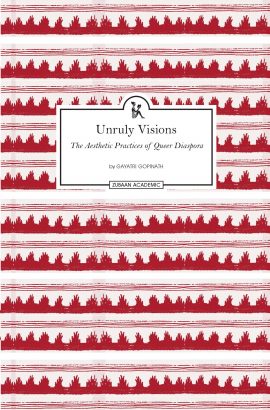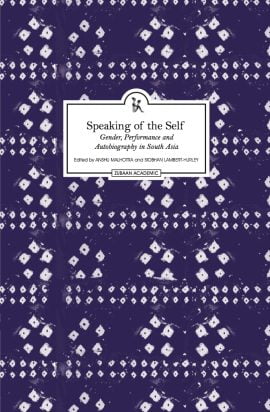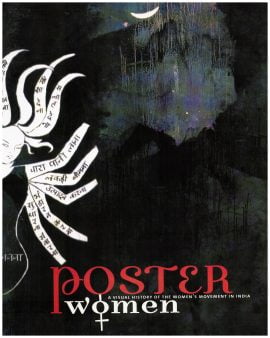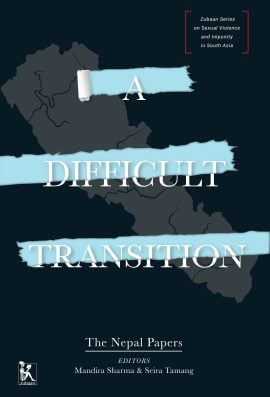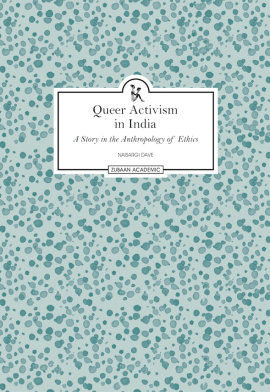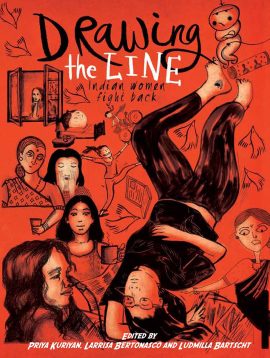No products in the cart.
Return To Shop
Log in / Sign in
Login
Register
Nine Degrees of Justice: New Perspectives on Violence Against Women in India
From ₹ 555
From an early focus on rape, dowry and sati, feminist struggles against violence on women in India have traversed a wide terrain to include issues that were invisible in the 1980s. In Nine Degrees of Justice, second and third-generation feminists share their perceptions on violence against women through a series of thought-provoking essays that establish that justice for women has not even reached double digit figures (hence nine degrees).Has using the law led to justice for women who face violence? What does 'justice' mean for an individual survivor? How can we address violence in public spaces and cyber space without demonizing either? How do women in armed conflict move from being victims to actors? How can we start to speak about lesbian suicides and violence among women loving women? How do we ensure that women have a 'right to choice' when love is seen as a crime? Is prostitution a form of violence against women? What is the violence of stigma? And who is a 'woman' deserving representation from the women's movement?
CONTRIBUTORS: Manjima Bhattacharjya | Shamita Das Dasgupta | Rajashri Dasgupta | Bishakha Datta | Maya Ganesh | Sonia Jabbar | Sharmila Joshi | Purnima Manghnani | Farah Naqvi | Puja Roy | Shilpa Phadke | Mona Zote
Select format
This product has multiple variants. The options may be chosen on the product page “With these powerful essays, Nine Degrees of Justice, bring out in the open many persuasive marginal voices pointing out their views and perspectives…This compilation raises uncomfortable questions, and directs search lights on women as subjects in all violent situations.”
— Vaijayanti Bezbaruah, CSSS Jawaharlal Nehru University
CONTRIBUTORS: Manjima Bhattacharjya | Shamita Das Dasgupta | Rajashri Dasgupta | Bishakha Datta | Maya Ganesh | Sonia Jabbar | Sharmila Joshi | Purnima Manghnani | Farah Naqvi | Puja Roy | Shilpa Phadke | Mona Zote
Unruly Visions: The Aesthetic Practices of Queer Diaspora
From ₹ 348During the current COVID-19 surge we are shipping orders from Delhi once per week. Please allow 8-10 business days for delivery.
In Unruly Visions, Gayatri Gopinath brings queer studies to bear on investigations of diaspora and visuality, tracing the interrelation of affect, archive, region and aesthetics through an examination of a wide range of contemporary queer visual culture. Spanning film, fine art, poetry and photography, these cultural forms—which Gopinath conceptualizes as aesthetic practices of queer diaspora—reveal the intimacies of seemingly disparate histories of (post)colonial dwelling and displacement and are a product of diasporic trajectories.Countering standard formulations of diaspora that inevitably foreground the nation-state, as well as familiar formulations of queerness that ignore regional gender and sexual formations, Gopinath stages unexpected encounters between works by South Asian, Middle Eastern, African, Australian and Latinx artists such as Sheba Chhachhi, Allan deSouza, Tracey Moffat and Akram Zaatari. Unruly Visions shows how their art functions as regional queer archives that express alternative understandings of time, space, and relationality.The queer optics produced by these visual practices create South-to-South, region-to-region and diaspora-to-region cartographies that profoundly challenge disciplinary and area studies rubrics. Gopinath thereby provides new critical perspectives on settler colonialism, empire, military occupation, racialization and diasporic dislocation as they indelibly mark both bodies and landscapes.“A tremendous advance over the current scholarship analyzing visuality, affect, and South-to-South queer diasporic artistic expression, Unruly Visions charts new cartographies of diasporic connections that provide a fresh orientation to our understanding of settler colonialism, empire, and racialization. Gayatri Gopinath’s book is a singular achievement that will have a profound impact within queer studies, indigenous and diaspora studies, visual studies, and aesthetics.” —Nayan Shah, author of Stranger Intimacy: Contesting Race, Sexuality, and the Law in the North American West
“A wonderfully detailed examination of queer diasporic films and visual art projects, this book explores how critical regionalism can interrupt conventional conceptions of local/global and metropolis/diaspora distinctions. Gayatri Gopinath's concept of a 'queer cartographic imaginary' resists neat categories and generalizations, offering an eclectic range of case studies—queer diaspora from Kerala and the Middle East, Latinx and U.S. cultures of immigration, and indigeneity.” —Ann Cvetkovich, author of Depression: A Public Feeling
GAYATRI GOPINATH is Associate Professor in the Department of Social and Cultural Analysis at New York University. She works at the intersections of transnational feminist and queer studies, postcolonial studies and diaspora studies.
From Possession to Freedom: The Journey of Nili-Nilakeci
From ₹ 495
The Tamil text Nīlakeci, dated around the 5th century CE (debated), is an unusual literary creation. It retrieves a violent, vengeful pēy (female possessing spirit) of Palayanur, transforming her into a Jaina philosopher. It was a profoundly subversive idea of its time, using the female persona and voice (for a hitherto disembodied being) to debate with preceptors of different schools of thought/religions of the time, all male, barring the Buddhist nun, Kuṇṭalakeci. Nīlakeci’s debates focus on questions of non-violence, existence of the soul, authorship and caste, among others.However, in order to truly appreciate this alter-texting, one has to unravel layers of other texts and traditions: the lesser known villuppāttu (bow-song) and nātakam (theatrical) versions of the pēy Nīli stories, as well as the story of Kuṇṭalakeci’s own transformative journey. Umamaheshwari situates these in a comparative context, while maintaining the centrality of the debates within Nīlakeci, using translation of selected excerpts.
R. UMAMAHESHWARI did her doctorate in History from Jawaharlal Nehru University, New Delhi. She has been an independent journalist and historian for some years. She was Fellow at the Institut d’Études Avancées de Nantes (Nantes Institute for Advanced Study), France (2017-18), and the Indian Institute of Advanced Study, Shimla (2014-16). She is author of Reading History with the Tamil Jainas: A Study on Identity, Memory and Marginalisation, 2017 and When Godavari Comes: People’s History of a River (A Journey in the Zone of the Dispossessed), 2014.
Select format
This product has multiple variants. The options may be chosen on the product page R. UMAMAHESHWARI did her doctorate in History from Jawaharlal Nehru University, New Delhi. She has been an independent journalist and historian for some years. She was Fellow at the Institut d’Études Avancées de Nantes (Nantes Institute for Advanced Study), France (2017-18), and the Indian Institute of Advanced Study, Shimla (2014-16). She is author of Reading History with the Tamil Jainas: A Study on Identity, Memory and Marginalisation, 2017 and When Godavari Comes: People’s History of a River (A Journey in the Zone of the Dispossessed), 2014.
Indian Feminisms: Individual and Collective Journeys
From ₹ 298
This collection of essays focuses on the post-1980s period of the Indian feminist movement, a moment rich in new and different modes of resistance, of widespread political engagements with issues of rights, of justice, of identity and much more. The writers here, all well-known activists and founders of some of the most important of feminist institutions, describe their individual and collective journeys, bringing attention to the movement, to their struggles, their campaigns, their victories and the challenges they have faced. In using the tools of feminist analysis – a focus on life stories, on oral accounts, on group formation and more – they also make a case for advocacy through legal and socio-political means.Despite being one of the most dynamic of feminist movements in the world, the Indian feminist movement has seldom been recognized as such. And yet, in addressing how women’s oppression and discrimination lie at the intersection of complex inequalities of caste, of region and religion, of class, of patriarchy, race, ethnicity, to name only a few, the writers in this volume make a case for the need for constant introspection, reflection and self-questioning, so that the movement can learn and grow. They show how in India, and indeed across much of South Asia, it is feminists who have stood against capitalism, war and violence, environmental degradation and fundamentalism and have forged alliances with varied movements, learning from them, working strengthening them but also infusing them with a feminist analysis.CONTRIBUTORS: Flavia Agnes | Abha Bhaiya | Anjali Dave | Padma Deosthali | V. Geetha | Poonam Kathuria | Corinne Kumar | Kanchan Mathur | Madhu Mehra | Yashoda Pradhan | Sangeeta Rege | Jaya Sharma | Taranga Sriraman | Suneeta Thakur | Saumya Uma
Poonam Kathuria is the founder and executive secretary of SWATI (Society for Women’s Action and Training Initiative).Abha Bhaiya is one of the founder members of Jagori, a feminist organization set up in 1984 in Delhi.Both are activists with a longstanding involvement in the women’s movement in India.
Select format
This product has multiple variants. The options may be chosen on the product page Poonam Kathuria is the founder and executive secretary of SWATI (Society for Women’s Action and Training Initiative).Abha Bhaiya is one of the founder members of Jagori, a feminist organization set up in 1984 in Delhi.Both are activists with a longstanding involvement in the women’s movement in India.
Voices and Values: The Politics of Feminist Evaluation
From ₹ 490
Over the last several years, regular evaluation of development programs has become essential in measuring and understanding their true impact. Feminist and gender-sensitive evaluations have gradually emerged, drawing attention to existing inequities—gender, caste, class, location, and more—and the cumulative effect of these biases on daily life. Such evaluations are also deeply political; they explicitly acknowledge that gender-based inequalities exist, show how they remain embedded in society, and articulate ways to address them.Based on four years of research, Voices and Values offers critical insight into how gender, class, and nationality inflect and affect sociological research. It examines how feminist evaluations could make an effective contribution to new policy formulations oriented to gender and social equity. The essays here focus centrally on the structural roots of inequity: giving weight to all perspectives; adding value to marginalized groups and people under evaluation; and taking forward the findings of evaluation into advocacy for change. In doing so, each essay advances the understanding of feminist evaluation both conceptually and as practice.CONTRIBUTORS: Venu Arora | Sneha Bhat | Pallavi Gupta | Vasundhara Kaul | Renu Khanna | Seema Kulkarni | Ranjani K. Murthy | Rajib Nandi | Srinidhi Raghavan | Neha Sanwal | Shubh Sharma | Ratna M. Sudarshan | Enakshi Ganguly Thukral | Sonal Zaveri
Select format
This product has multiple variants. The options may be chosen on the product page Speaking of the Self: Gender, Performance and Autobiography in South Asia
₹ 695
Many consider the autobiography to be a Western genre that represents the self as fully autonomous. The contributors to Speaking of the Self challenge this presumption by examining a wide range of women’s autobiographical writing from South Asia.Expanding the definition of what kinds of writing can be considered autobiographical, the contributors analyze everything from poetry, songs, mystical experiences and diaries, to prose, fiction, architecture and religious treatises. The authors they study are just as diverse: a Mughal princess, an eighteenth-century courtesan from Hyderabad, a nineteenth-century Muslim prostitute in Punjab, a housewife in colonial Bengal, a Muslim Gandhian devotee of Krishna, several female Indian and Pakistani novelists and two male actors who worked as female impersonators.The contributors find that in these autobiographies the authors construct their gendered selves in relational terms. Throughout, they show how autobiographical writing - in whatever form it takes - provides the means towards more fully understanding the historical, social and cultural milieu in which the author performs herself and creates her subjectivity.
Add to cart
Poster Women: A Visual History of the Women’s Movement in India
₹ 695
Poster Women is an archive of over 1500 posters from the Indian Women's Movement, collected over an 18 monthperiod from all over India. Put together by Zubaan, this unique archive demonstrates the dynamism, richness and variety of this important movement. Spanning the periodfrom the 70s to the present day, the collection is divide into a number of key campaigns that cover areas such as violence, health, political participation, the environment, religion and communalism, literacy and rights and marginalization. Also included are posters on different themes such as the use of the goddess metaphor, or the marking of particular days that ara important to the movement. The collection has been sourced from over 200 groups all over the country.
Read more
A Difficult Transition: The Nepal Papers
From ₹ 348
The Sexual Violence and Impunity in South Asia research project (coordinated by Zubaan and supported by the International Development Research Centre) brings together, for the first time in the region, a vast body of knowledge on this important – yet silenced – subject. Six country volumes (one each on Bangladesh, Nepal, Pakistan, Sri Lanka, and two on India) comprising over fifty research papers and two book-length studies detail the histories of sexual violence and look at the systemic, institutional, societal, individual and community structures that work together to perpetuate impunity for perpetrators.The essays in this volume focus on Nepal, which though not directly colonized, has not remained immune from the influence of colonialism in its neighbourhood. In addition to home-grown feudal patriarchal structures, the writers in this volume clearly demonstrate that it is the larger colonial and post-colonial context of the subcontinent that has enabled the structuring of inequalities and power relations in ways that today allow for widespread sexual violence and impunity in the country – through legal systems, medical regimes and social institutions.The period after the 1990 democratic movement, the subsequent political transformation in the aftermath of the Maoist insurgency and the writing of the new constitution, has seen an increase in public discussion about sexual violence. The State has brought in a slew of legislation and action plans to address this problem. And yet, impunity for perpetrators remains intact and justice elusive. What are the structures that enable such impunity? What can be done to radically transform these? How must States understand the search for justice for victims and survivors of sexual violence? The essays in this volume attempt to trace a history of sexual violence in Nepal, look at the responses of women’s groups and society at large, and suggest how this serious and wide-ranging problem may be addressed.
Select format
This product has multiple variants. The options may be chosen on the product page Undoing Impunity: Speech After Sexual Violence
From ₹ 555
The Sexual Violence and Impunity in South Asia research project (coordinated by Zubaan and supported by the International Development Research Centre) brings together, for the first time in the region, a vast body of knowledge on this important – yet silenced – subject. Six country volumes (one each on Bangladesh, Nepal, Pakistan, Sri Lanka, and two on India, as well as two standalone volumes) comprising over fifty research papers and two book-length studies, detail the histories of sexual violence and look at the systemic, institutional, societal, individual and community structures that work together to perpetuate impunity for perpetrators.In this remarkable and wide-ranging study, activist and historian V. Geetha unpacks the meanings of impunity in relation to sexual violence in the context of South Asia. The State’s misuse of its own laws against its citizens is only one aspect of the edifice of impunity; its less-understood resilience comes from its consistent denial of the recognition of suffering on the part of victims, and its refusal to allow them the dignity of pain, grief and loss.Time and again, in South Asia, the State has worked to mediate public memory, to manipulate forgetting, particularly in relation to its own acts of commission. It has done this by refusing to take responsibility, not only for its acts but also for the pain such acts have caused. It has done this by denying suffering the eloquence, the words, the expression that it deserves and papering over the hurt of people with routine government procedures.The author argues that the State and its citizens must work together to accord social recognition to the suffering of victims and survivors of sexual violence, and thereby join in what she calls ‘a shared humanity’. While this may or may not produce legal victories, the acknowledgment that the suffering of our fellow citizens is our collective responsibility is an essential first step towards securing justice. It is this, that in a fundamental sense, challenges and illuminates the contours and details of State impunity and positions impunity as not merely a legal or political conundrum, but as resolute refusal on the part of State personnel to be part of a shared humanity.
Select format
This product has multiple variants. The options may be chosen on the product page Queer Activism in India: A Story in the Anthropology of Ethics
₹ 695In Queer Activism in India, Naisargi N. Dave examines the formation of lesbian communities in India from the 1980s to the early 2000s. Based on ethnographic research conducted with activist organizations in Delhi, a body of letters written by lesbian women, and research with lesbian communities and queer activist groups across the country, Dave studies the everyday practices that constitute queer activism in India.
Dave argues that activism is an ethical practice comprising critique, invention, and relational practice. She investigates the relationship between the ethics of activism and the existing social norms and conditions from which activism emerges. Through her analysis of different networks and institutions, Dave documents how activism oscillates between the potential for new social arrangements and the questions that arise once the activists’ goals have been achieved. Queer Activism in India addresses a relevant and timely phenomenon and makes an important contribution to the anthropology of queer communities, social movements, affect, and ethics.
“The exciting aspect of this book is how Dave draws on the everyday practices of queer activism, in particular lesbian activism in India, to expose the deeply considered and ethical positions that they take. . . . Dave’s book marks a significant contribution to the archive of queer scholarship generally, but more importantly to making visible a postcolonial perspective in this scholarship.” — Ratna Kapur, Journal of Anthropological Research
“A beautifully written ethnography, offering a passionately detailed ethnographic perspective on queer politics, feminism, and social movements in India.” — Kamala Visweswaran, author of Un/common Cultures: Racism and the Rearticulation of Cultural Difference
“Dave’s book, with its anecdotes, observations, and rich endnotes, will no doubt add to our understanding of urban lesbian activism while compelling us to reflect about methods and ethics in the age of “affect.”” — Shohini Ghosh, Journal of Asian Studies
NAISARGI DAVE is Assistant Professor of Anthropology at the University of Toronto.
Drawing the Line: Indian Women Fight Back
From ₹ 348
December 2012: Tens of thousands of people – women, men, families, young, old, rich, poor – come out onto the streets of towns and cities in India to protest the brutal gang rape and murder of a young medical student in Delhi. For days and months, the protests refuse to die down. People demand change, action, commitment to the ideals of democracy and egalitarianism. And they refuse to be silenced.Soon, a new law is put in place. More and more people start to report incidents of sexual assault. New conversations, new debates begin: is violence increasing? Are we seeing more of it? Was it previously invisible?In this bold and brilliant collection of visual stories, fourteen young women respond to the activism and debates on the ground; they negotiate anger, fear, hope, resistance. Created in a week-long workshop, these stories talk to each other as they powerfully describe the fierce determination of the writers/artists to continue the battle for change.
Select format
This product has multiple variants. The options may be chosen on the product page Feminist Research Methodology: Making Meanings of Meaning-Making
From ₹ 348
This book focuses on feminist research methodology, exploring and analysing its constituting methods, theory, ontology, epistemology and ethics and politics, as well as the significance of the subjectivity of the researcher in research issues relating to women, gender and feminism in Sri Lanka. The book examines ways of meaning-making for political, ideological and social change, and constructs an example of feminist research praxis.Using this South Asian country as a case study, the author looks at the means by which researchers in this field inhabit, engage with and represent the multiple realities of women and society in Sri Lanka. In analysing what constitutes feminist research methodology in a transitional country, the book links local research practices with Western feminist approaches, taking into account the commonalities, distinctions and specificities of working in a South Asian context.With an emphasis on general issues and debates in global feminist theory and methodology, the book explores the issues of reflexivity, standpoint, gender, women’s agency, empiricism, and the feminist politics of Marxism and democracy, positivism, induction, deduction, post-modernism and postcolonialism.Engaging with and re-conceptualising three traditionally different types of research — women’s studies, gender studies and feminist studies — Feminist Research Methodology provides a framework for researching feminist issues. Applicable at both local and global levels, this original methodological framework will be of value to researchers working in any context.
Select format
This product has multiple variants. The options may be chosen on the product page Contact Us
© Zubaan 2019. Site Design by Avinash Kuduvalli.
Payments on this site are handled by CCAvenue.


